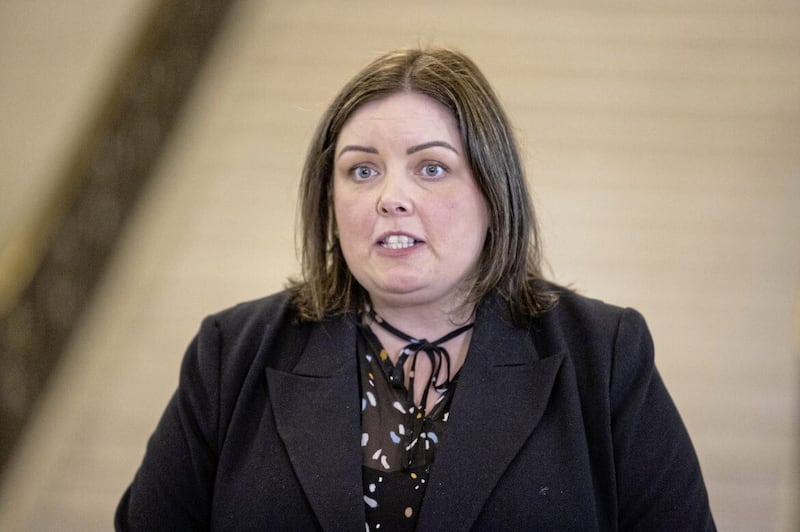Deputy First Minister Emma Little-Pengelly’s lack of a personal electoral mandate “reduces her credibility”, according to Irish News columnist Brian Feeney.
The Lagan Valley MLA, who on Saturday accepted the DUP nomination to serve at the head of the executive alongside Michelle O’Neill, was co-opted into the assembly to replace Sir Jeffrey Donaldson within days of the May 2022 election.
She is the first co-optee to hold the first or deputy first minister’s post, however, two previous executive ministers have taken up their roles without a personal electoral mandate.
Sinn Féin’s Deirdre Hargey was appointed communities minister in January 2020 within a year of replacing Máirtín Ó Muilleoir in the assembly, while Diane Dodds joined the executive at the same time as economy minister having been co-opted into the assembly in 2019 to replace Carla Lockhart, following the latter’s election to Westminster.

Emma Little-Pengelly, a former special adviser to DUP leader Peter Robinson, was appointed as a junior minister in 2015 shortly after being co-opted as an MLA for South Belfast.
Mr Feeney said it was widely acknowledged that appointing ministers who were co-optees was “in the rules”.
“However, co-opting a deputy first minister reduces her credibility since she has no mandate,” he said.
“She will be at a disadvantage in every interview because she’ll be hit with: ‘No one elected you – are you just keeping the seat warm for Donaldson?’”.
The Irish News columnist said it was a “bad decision” by the DUP leader.
Fellow commentator David McCann said co-options had become a “regular feature at Stormont” and that co-optees were now reaching higher office.
“It’s perfectly within the rules of Stormont – both Sinn Féin and the DUP have put co-optees into the executive – but for the public this is a confusing system and can fuel cynicism,” he said.
The Slugger O’Toole deputy editor said there were a number of reforms to the co-option system that should be considered for the 2027 election, such as reserve lists that names the potential replacements should an MLA stand down.
The DUP has been approached for comment.


